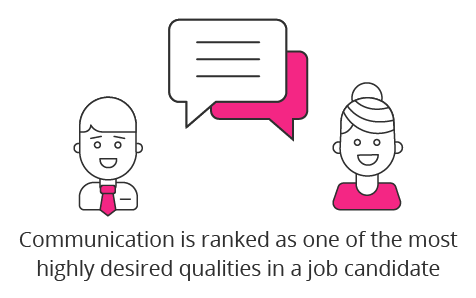What’s Holding You Back From Getting Hired?
You get the phone call, letting you know you’ve been selected for the interview round of the job you applied for. You’ve got the appropriate qualifications, all the technical skills the job requires, as well as work experience. A few days later you receive an email that informs you you didn’t get the job.
Sound like a familiar scenario? Perhaps what you consider to be valuable in a job interview process differs from what employers are on the lookout for.
Jeff Kavanaugh, Professor in the University of Texas’ MBA programme, conducted a survey of over 3,000 students and recruiters to uncover their assumptions about the skills that lead to success in the job market.1
His discovery: recruiters and employers are more interested in your soft skills.
Emőke Starr, Head of HR at Prezi, backs this, saying their company looks “ for candidates with a solid foundation of soft skills and trust so that the rest can be built upon it.”2
With today’s workplace subject to rapid change and evolution, employers seem to be valuing skills that will remain steadfast more than hard skills, which could be rendered irrelevant by the time you’ve become an expert in them.
If you want to impress recruiters in your next interview, ensure you’re able to demonstrate these three soft skills, valued by top employers:
1. Use effective communication to win them over
If you really think this is an attribute you possess, find a way to demonstrate that on your resume, in the lead up to the interview and in the interview itself.
Ranked as being one of the most highly desired qualities in a job candidate, your communication abilities need to shine through during the hiring process.3
Julie Sweet, CEO of a $16 billion company says, “An employee, even a very junior person, if they can articulately summarise a meeting, if they can put together a presentation and even emails that are really salient and to the point, they are so valued.”4

How do you prove your communication abilities?
- Go on mock interviews for jobs you aren’t seriously considering
- Enrol in a Toastmasters course to enhance your public speaking skills
- Jot down notes before your interview to prepare for the questions that will be asked of you
- When writing an email, keep it succinct and professional
Related Content: How to Write a Professional Email
2. Prove you have the focus to follow through
How much attention do you give the work you do? Jake Rozmaryn, CEO of Eco Branding, believes that attention is conscientiousness and that he often sees “careless typing and formatting errors in applicant writing and work samples, cover letters, resumes, etc.”5
![]()
But a well-written, grammatically correct email isn’t enough to demonstrate your attention skills.
The ability to remain focused is a soft skill which encompasses a number of competencies: attention to detail, time management, and follow-through. These abilities show an employer you can confidently own and execute on an initiative or deliverable from beginning to end.
Action: If you want to pitch up to an interview with proof that you have focus, pursue side projects which will allow you to demonstrate that you pay attention to detail, can manage your time and prioritise.
3. Show employers you’re agile
When you’re under pressure, do you remain calm, work through it, or panic? How do you respond when setbacks or unexpected changes occur?
Recruiters and employers want to see that you have agility – that you’ve had to overcome obstacles in your past work experience, and that you did it without giving up.

Which of the above soft skills do you possess and which do you need to spend time crafting?
If you invest in honing these skills and add them to your already-existing technical skills, that face-to-face interview won’t be the final destination for much longer.